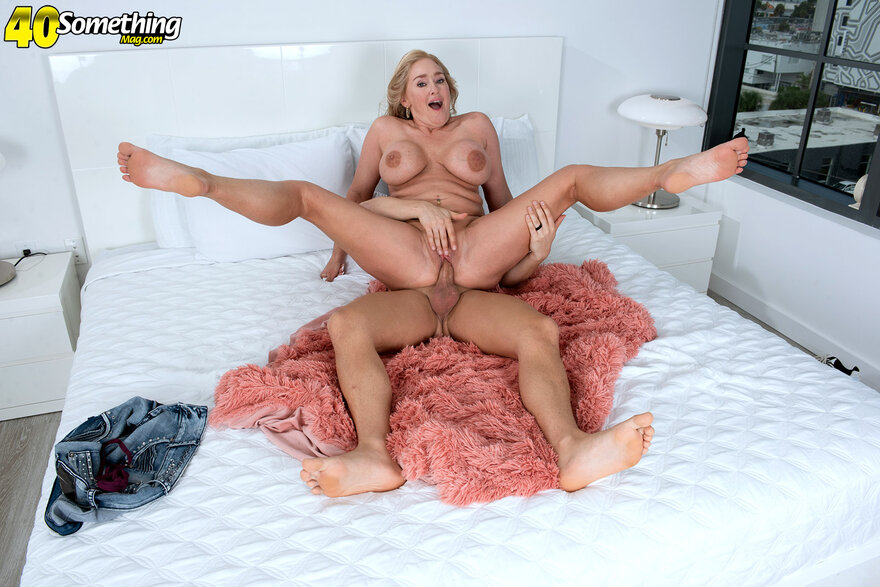Nina Raine - Artistic Voice And Public View
Sometimes, a creative spirit captures attention in ways that go beyond the stage or page, drawing people into a broader conversation about art, identity, and the public eye. When someone like Nina Raine, a playwright and director known for her sharp observations and honest storytelling, puts her work out into the world, it invites a range of reactions and discussions. It's almost as if her creations, which truly explore the human condition, encourage us to think about how we perceive others, especially those who make things for us to experience.
You know, there's a natural curiosity we all possess about the people behind the stories we enjoy, or the ideas that make us think. This interest, it seems, can sometimes lead to searches that aim to peel back layers, to find something more personal, or perhaps something that feels a bit more raw. For a person like Nina Raine, whose art often deals with deeply felt emotions and exposed truths, this public interest takes on a rather interesting shape, connecting her professional output with broader human questions about what we choose to show and what others seek to uncover.
It's pretty fascinating, really, how a name can become a focal point for so many different kinds of inquiries. The way people look for information about public figures often mirrors a desire to get a fuller picture, to understand the person behind the artistic output. This kind of seeking, which can lead to specific search phrases, reflects a general human desire to connect with the people who shape our cultural experiences, sometimes in ways that might seem a little unexpected, but are perhaps just a part of our collective curiosity about creative individuals.
Table of Contents
- Who is Nina Raine - A Creative Life Unpacked?
- What Themes Does Nina Raine Explore in Her Work?
- How Does Public Perception Shape an Artist's Narrative?
- Is Artistic Expression Ever Truly "Nude" in Its Honesty?
- The Playwright's Lens - Seeing the World Unfiltered
- What Drives Nina Raine's Storytelling?
- Where Can You Experience Nina Raine's Creative Vision?
- Why the Curiosity Around "Nina Raine Nude" Searches?
Who is Nina Raine - A Creative Life Unpacked?
Nina Raine stands as a significant voice in contemporary British theatre. She is a writer of plays and a director of stage productions. Her pieces often grab attention for their smart dialogue and their way of looking closely at human behavior. She has a way of putting people on stage that makes them feel very real, with all their imperfections and strengths. Her background includes a strong connection to the arts, as her father, Craig Raine, is a celebrated poet and academic. This family tie to literary pursuits perhaps helped shape her own path into creative expression. She has, you know, brought many stories to life, earning praise for her ability to create compelling dramatic experiences.
Her work often gets people talking because it touches on subjects that are quite relevant to our lives today. She has a talent for picking apart social norms and showing the often-hidden feelings that drive people. It's like she holds a mirror up to society, letting us see parts of ourselves and our interactions that we might not always notice. Her contributions to the theatre world are quite substantial, adding depth and new ideas to the collection of plays being performed. She is, in a way, a storyteller who makes us think deeply about the human condition.
Personal Details
| Full Name | Nina Raine |
| Occupation | Playwright, Theatre Director |
| Nationality | British |
| Known For | Plays like "Tribes," "Consent," "Rabbit" |
| Notable Traits | Sharp dialogue, insightful character studies |
What Themes Does Nina Raine Explore in Her Work?
Nina Raine's plays often dig into some pretty deep and sometimes uncomfortable topics. She has a knack for exploring how people communicate, or rather, how they often fail to connect with one another. Her writing often looks at family relationships, the tricky parts of love, and the different ways people try to understand each other. For example, in "Tribes," she puts a family dynamic under the microscope, specifically looking at a young man who is deaf and how his family, who are hearing, struggles to truly hear him. It’s a very honest look at what it means to belong and to be understood, or, you know, misunderstood.
Another common thread in her pieces is the idea of truth and how people perceive it. She questions what is real, what is said, and what is truly meant. In "Consent," for instance, she examines the complexities of legal and personal consent, showing how different people can have very different ideas about the same events. This play, quite frankly, gets into the messy parts of human interaction and the difficulty of finding a shared sense of reality. It's a bit like she's asking us to consider how our own biases shape what we believe to be true, especially when it comes to sensitive situations. Her work really pushes audiences to think about these things, which is pretty powerful.
She also frequently touches upon vulnerability and the raw aspects of human experience. Her characters are often put in situations where their deepest feelings and beliefs are laid bare. This sense of exposure, of showing the true self, is a recurring idea in her plays. It's not about physical exposure, but rather an emotional or psychological one, where characters confront their fears, their flaws, and their genuine desires. So, in some respects, her plays are about the emotional "nina raine nude" of the human spirit, stripped of pretense, showing us what it means to be truly open and sometimes, really hurting. This focus on the unvarnished truth of human feeling is what makes her plays resonate with so many people.
How Does Public Perception Shape an Artist's Narrative?
The way the public sees an artist can really shape how their work is understood, and even how their own story gets told. Once a creative person puts their art out there, it takes on a life of its own, and people start to form their own ideas about it, and about the person who made it. This can be a fascinating process, because what an artist intends might not always line up with what the audience takes away. It’s a bit like a conversation where one side is speaking through their art, and the other side is listening and interpreting, sometimes adding their own thoughts and feelings to the mix. This means the narrative around an artist, you know, keeps changing.
Sometimes, this public view can even extend beyond the art itself, into the artist's personal life or what people imagine it to be. There’s a natural human tendency to be curious about the private lives of those who create things we admire or who provoke our thoughts. This curiosity, which is very human, can lead to all sorts of speculation or searches for information that goes beyond the public persona. It's almost as if people want to see the whole person, not just the part that is presented on stage or in a book. This often creates a public narrative that is a blend of fact, interpretation, and sometimes, a little bit of guesswork.
For someone like Nina Raine, whose plays are so honest and revealing about human nature, this public perception can be particularly interesting. Her work often invites audiences to look closely at themselves and others, and perhaps this same desire for closeness or a deeper look extends to her as an individual. The way people search for information, or the phrases they use to find out more, reflects this general human desire to understand the people behind the stories. It shows how the public, in a way, tries to get a more complete picture of creative figures, sometimes looking for the "nina raine nude" truth of their being, even if it's just a metaphorical uncovering.
Is Artistic Expression Ever Truly "Nude" in Its Honesty?
When we talk about artistic expression being "nude," we're not talking about anything physical, but rather a deep sense of honesty and vulnerability. It's about an artist being so open in their work that it feels raw, exposed, and completely truthful. Think about a play where the characters speak their minds without holding back, revealing their flaws and their deepest fears. That kind of writing, that kind of performance, can feel incredibly honest, almost like it's stripped bare of all pretense. It’s a very powerful way for art to connect with people, because it feels so real, so much like life itself.
Nina Raine's plays often achieve this kind of emotional nakedness. Her characters, you know, often find themselves in situations where they have to confront difficult truths about themselves and others. The dialogue she writes can be sharp and unflinching, making audiences feel as if they are witnessing something genuinely intimate. This quality, this willingness to show the unvarnished aspects of human behavior, is what gives her work its unique power. It’s a form of artistic bravery, where the creator isn't afraid to explore the uncomfortable or the unseen parts of life, making the audience feel a little bit exposed themselves, but in a good way, because it rings true.
So, in this sense, the idea of "nina raine nude" could be seen as a way to describe the profound honesty and the willingness to lay bare human experience that defines her creative output. It’s about the art itself being vulnerable, showing the messy, beautiful, and sometimes painful aspects of being human without trying to hide anything. This kind of artistic integrity is what makes her a compelling voice in theatre, drawing people in with stories that feel deeply authentic and truly seen. It's a testament to her skill that her work can feel so utterly exposed, yet so universally relatable, like a shared human experience.
The Playwright's Lens - Seeing the World Unfiltered
A playwright, in a way, acts like a special kind of observer, taking in the world around them and then reshaping it into stories that can be shared on a stage. They have a unique perspective, a "lens," if you will, through which they see human interactions, social patterns, and the small, telling details of daily life. This way of looking at things isn't about judging, but more about understanding and presenting. They pick up on conversations, notice gestures, and consider the unspoken feelings that often drive people's actions. It’s a very active process of observation, which then gets translated into dramatic form.
Nina Raine, very much, uses her playwright's lens to offer audiences a look at life that feels unfiltered. She doesn't shy away from showing the awkward pauses, the miscommunications, or the moments of genuine confusion that are a part of human experience. Her writing often feels like a direct window into the thoughts and feelings of her characters, making them feel incredibly real and relatable. This directness, this lack of softening the edges, is a hallmark of her style. It's like she's inviting you to sit down and just watch people be people, without any added gloss or polish, which is pretty compelling.
This approach means her plays can sometimes feel quite intense, because they are so true to life. They don't offer easy answers or simple solutions; instead, they present situations that mirror the complexities we all face. This commitment to showing things as they are, rather than as we might wish them to be, is a powerful aspect of her creative work. It’s a bit like she’s saying, "Here are people, with all their messiness and brilliance, just as they are." This unfiltered view is what makes her voice so distinctive and so important in contemporary theatre, allowing us to consider life with a greater sense of authenticity.
What Drives Nina Raine's Storytelling?
It seems that what really pushes Nina Raine to tell her stories comes from a deep interest in how people connect, or sometimes, how they fail to connect. She appears fascinated by the way we use language, and how words can both build bridges and create walls between us. Her plays often explore the nuances of communication, looking at what is said, what is heard, and the vast space of misunderstanding that can exist in between. This exploration of human interaction, in all its forms, feels like a core motivator for her creative endeavors. She is, quite simply, interested in people and how they relate to each other.
Another strong drive appears to be a desire to question societal norms and expectations. She doesn't just accept things as they are; instead, she puts them under a magnifying glass, inviting her audience to do the same. Whether it's the idea of family loyalty, the complexities of legal justice, or the unspoken rules of social gatherings, she pokes at these concepts, asking us to consider them from different angles. This questioning spirit, which is very much a part of her work, pushes her to create narratives that are thought-provoking and sometimes, a little bit unsettling, but always in a way that makes you think more deeply.
Ultimately, it feels like a genuine curiosity about the human condition itself is what truly fuels her storytelling. She wants to understand why people do what they do, what motivates their choices, and what lies beneath the surface of their public presentation. This quest for deeper understanding, for the honest truth of human experience, is what makes her plays so compelling. It's a bit like she's constantly asking, "What does it mean to be human, really?" And in her plays, she offers some truly insightful, and sometimes, very raw answers, which resonate with many who seek to understand themselves and others.
Where Can You Experience Nina Raine's Creative Vision?
If you're interested in experiencing Nina Raine's unique creative vision, the best place to look is, of course, the theatre. Her plays are performed on stages in various places, especially in the United Kingdom, where she has a strong presence in the theatrical community. Major theatres often produce her work, so keeping an eye on their schedules can be a good way to catch a live performance. There's something truly special about seeing a play performed live, with actors bringing her words to life right in front of you. It’s a very direct way to connect with her storytelling.
Beyond live performances, many of her plays are published, meaning you can often find her scripts in book form. Reading a play script can be a different but equally rewarding experience. It allows you to delve into her dialogue and stage directions at your own pace, imagining the scenes and characters as you read. This can be a good way to appreciate the careful construction of her stories and the depth of her character development. So, you know, if you can't make it to a live show, picking up one of her published works is a great alternative for understanding her perspective.
Sometimes, too, her plays might be adapted for radio or even television, though live theatre remains her primary medium. These adaptations offer another way for a wider audience to encounter her narratives. Looking up theatre archives or specific production company websites can also provide information on past and upcoming shows. It’s pretty clear that her work continues to be highly regarded and widely produced, offering many opportunities for people to engage with her sharp observations and her honest portrayals of human life, allowing them to experience the profound depth of her artistic expression.
Why the Curiosity Around "Nina Raine Nude" Searches?
It's interesting to consider why certain search terms, like "nina raine nude," might become popular online when discussing a public figure, especially someone known for their artistic contributions rather than, say, a personal scandal. Part of it, perhaps, comes from a general human curiosity about the lives of creative people. When someone produces work that is deeply honest or emotionally revealing, there can be a natural tendency for people to want to know more about the person behind that work, sometimes seeking information that feels more personal or unfiltered. It's a bit like wanting to see the "real" person, beyond the public face they present through their art.
Another aspect might relate to the metaphorical nature of her work. As discussed, Nina Raine's plays often explore themes of vulnerability, truth, and emotional exposure. The characters in her stories are frequently stripped bare of their pretenses, revealing their true selves. This artistic "nakedness" or honesty in her storytelling could, in a way, lead to search terms that mirror that concept, even if they are misinterpreted literally. It’s almost as if the intensity of her artistic vision, which is very raw, sparks a desire to find something equally raw or unadorned about her personally, even if that connection is purely conceptual rather than factual.
Also, the internet, you know, has a way of creating and spreading all sorts of inquiries, some of which might stem from misunderstanding, or simply from the sheer volume of information and searches. A term might gain traction for reasons that are not always clear, perhaps through accidental association or a misinterpretation of content. For a playwright whose work delves into the depths of human experience and the complexities of relationships, the public's search patterns can sometimes reflect a desire to uncover something equally profound or, in a very different sense, "exposed" about the artist herself. It highlights how public figures, even those focused on artistic integrity, can become subjects of wide-ranging public interest, sometimes leading to unexpected search queries about them.

Nina Phoenix nude Porn Pictures, XXX Photos, Sex Images #4075268 - PICTOA

Wendy Gwiazdy Porno - EPORNER

Harley Raines Rock Pool - harleyspa54 Porn Pic - EPORNER